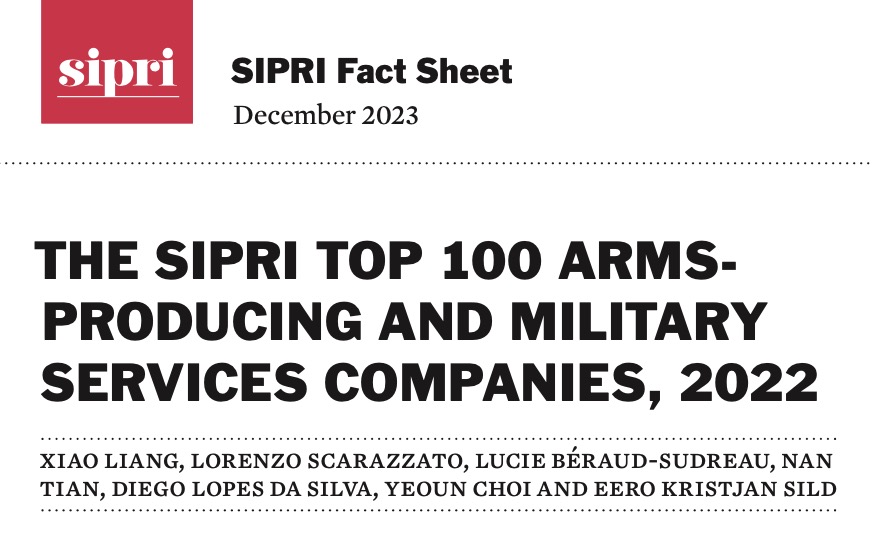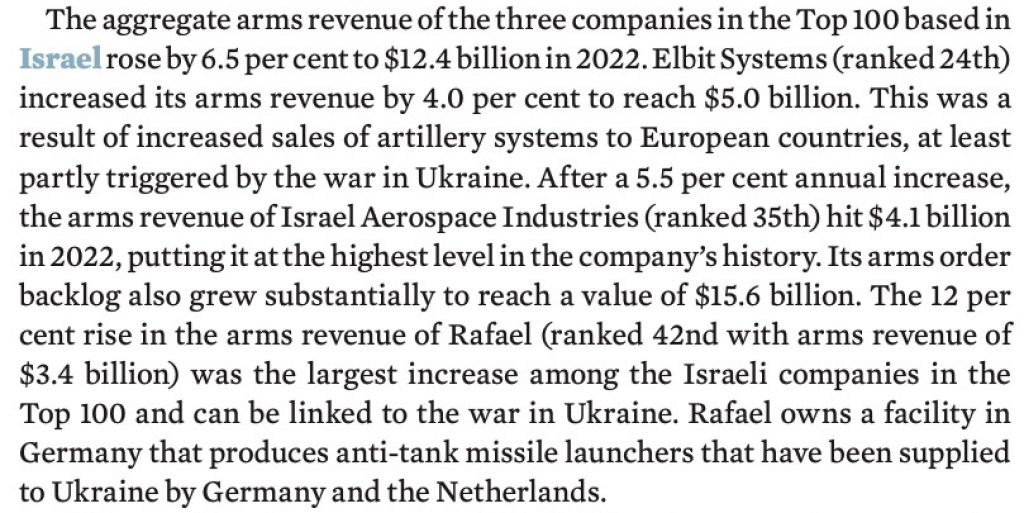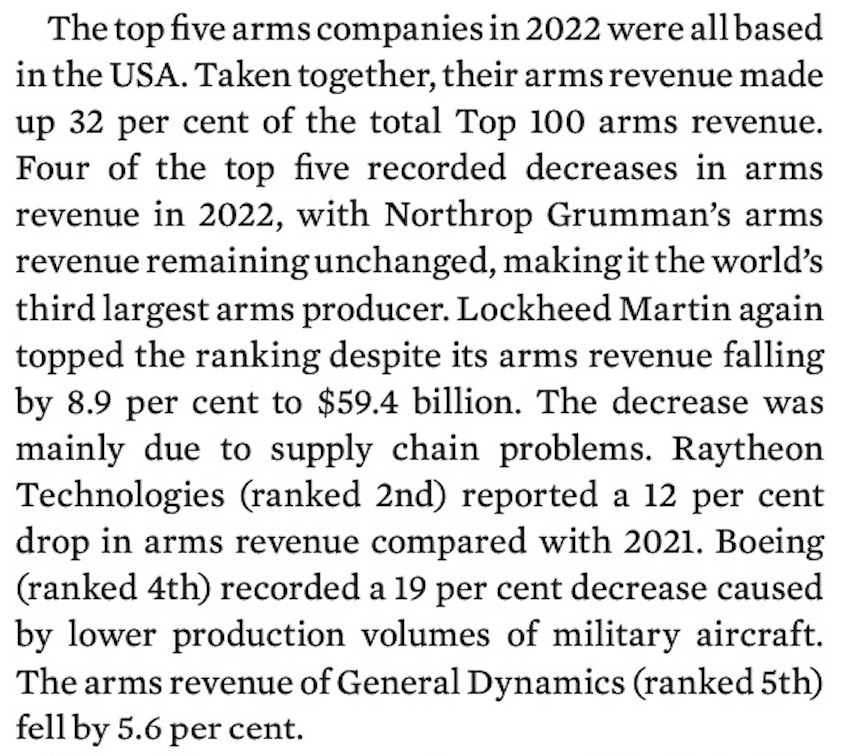
6 Dec, 2023
Gaza butchery set to boost bottom-lines of global merchants of death, especially the Israelis
Bangkok – The blood of innocent Palestinians is set to generate a financial goldmine for Israeli arms dealers Elbit Systems, Israel Aerospace Industries and Rafael. According to the Stockholm International Peace Research Institute (SIPRI), the aggregate arms revenue of these three companies rose by 6.5 per cent to $12.4 billion in 2022. That was triggered mainly by arms supplies to European companies for the war in Ukraine. As all wars are good for business, the ongoing savage butchery in Gaza is sure to drive up the revenues for 2023.

According to the SIPRI report, the Israeli companies’ earnings rose even though the combined arms revenue of the world’s 100 largest arms-producing and military services companies (the SIPRI Top 100) dropped 3.5% over 2021 to $597 billion in 2022. The report says that Russia’s invasion of Ukraine drove increased demand for weapons but “many arms companies’ efforts to increase production capacity were hindered by labour shortages, rising costs and supply chain disruptions. Outstanding orders and a wave of new contracts signal that global arms revenue could grow substantially in the next few years.”
It adds, “Despite the year-on-year drop, the total Top 100 arms revenue was still 14 per cent higher in 2022 than in 2015 — the first year for which SIPRI included Chinese companies in its ranking.”
The report notes that the weapons produced by the three Israeli companies were all in high demand in both 2022 and 2023. Elbit Systems produces Ammunition and artillery; Israel Aerospace Industries produces UAVs (drones) and Rafael produces Air defence systems, air-to-surface missiles, anti-tank guided missiles, surface-to-air missiles and surface-to-surface missiles.
Says the report,

The other noteworthy finding is related to the American armaments companies, as follows:
For travel & tourism, these merchants of death are great sources of revenue. Their exhibitions and trade shows generate phenomenal MICE business. Their executives travel the world in private jets, stay in upmarket hotels, spend huge amounts on entertainment.
On the other hand, a few soul-searching questions do arise:
(+) As merchants of death and lifestyles of their shareholders and stakeholders depend entirely on positive growth of death and destruction, it would be fair to ask: To what extent are they responsible for fomenting it?
(+) As a major climate change conference is under way in Dubai, is any session devoted to quantifying and analysing the environmental and ecological impact of the merchants of death, especially the mining of special metals and output of greenhouse gases?
(+) Would the world be a better place if these billions squandered on weapons could be redirected to funding the SDGs?
(+) If “sustainability” is really a major concern, why isn’t the overall death, damage and destruction caused by the merchants of death never discussed by the travel industry, the so-called “industry of peace”?
Download the latest SIPRI report and read more about why these companies just love wars and conflict.



Liked this article? Share it!